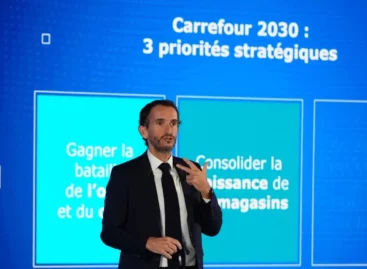This is how artificial intelligence became part of everyday life
Artificial intelligence (AI) has become an almost invisible part of everyday life, according to the Ipsos AI Monitor 2025 global survey and international research by EY. While the majority of corporate decision-makers believe their company has already exploited the opportunities offered by AI, average users are still more cautious, especially when it comes to data protection, transparency and reliability. However, according to K&H’s experience, trust can be strengthened – through easy, fast and personalized solutions.
AI is already all around us – unnoticed
 According to Ipsos data, more than half of respondents have already encountered an AI-based solution, but many only realized afterwards that the technology was working in the background. It is already completely natural for younger people to use tools that are powered by advanced algorithms or even artificial intelligence – for example, when a movie or webshop recommendation finds something they like, a chatbot answers customer service questions for them, or an online loan application runs almost automatically.
According to Ipsos data, more than half of respondents have already encountered an AI-based solution, but many only realized afterwards that the technology was working in the background. It is already completely natural for younger people to use tools that are powered by advanced algorithms or even artificial intelligence – for example, when a movie or webshop recommendation finds something they like, a chatbot answers customer service questions for them, or an online loan application runs almost automatically.
“Artificial intelligence is only really useful when it doesn’t complicate things, but simplifies them. At K&H, AI solutions are already working behind the scenes for customers – whether it’s a one-minute credit card application, an automatic callback system or the services of the digital assistant Kate. The customer only perceives that banking is easier, faster and more personalized,”
– highlighted Zsolt Vadócz, Head of Digitalization at K&H.
According to the most important findings of the research, the social perception of artificial intelligence is complex, but increasingly accepted – especially when users feel its direct benefits. 79 percent of respondents believe that companies should publicly disclose when they use artificial intelligence, with Hungarians holding this view at a slightly higher rate, 82 percent. This clearly shows that transparency is a key issue in strengthening trust.
A relative majority of those participating in the research, four out of ten, believe that the increased use of artificial intelligence will increase the amount of disinformation on the internet. Hungarian respondents see the situation much more gloomily on this issue: 60 percent of them believe this.
Related news
Top 5 sustainability trends in 2026 – a new era may begin
🎧 Hallgasd a cikket: Lejátszás Szünet Folytatás Leállítás Nyelv: Auto…
Read more >Related news
NAK President: more than 120 thousand people signed the agricultural petition in one month
🎧 Hallgasd a cikket: Lejátszás Szünet Folytatás Leállítás Nyelv: Auto…
Read more >








